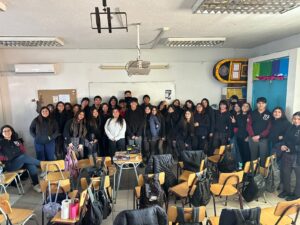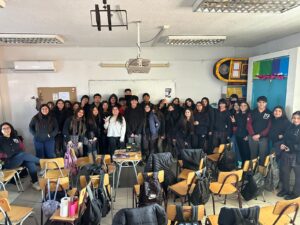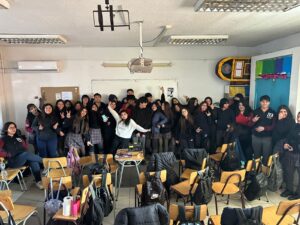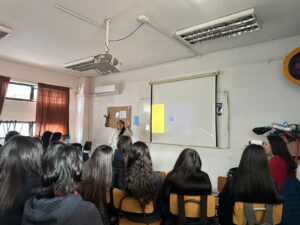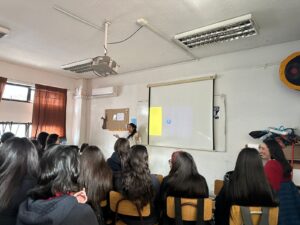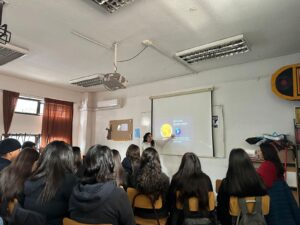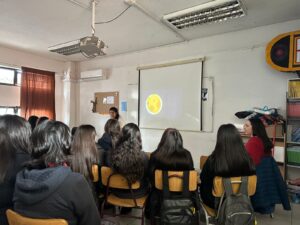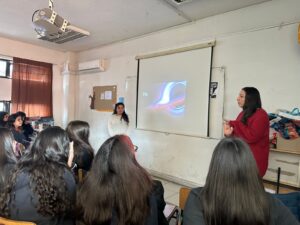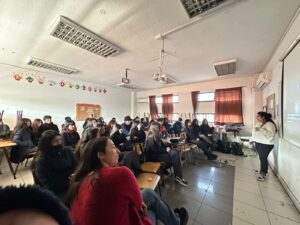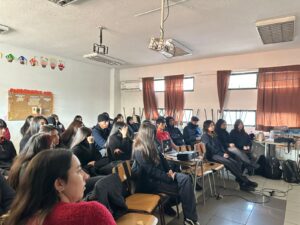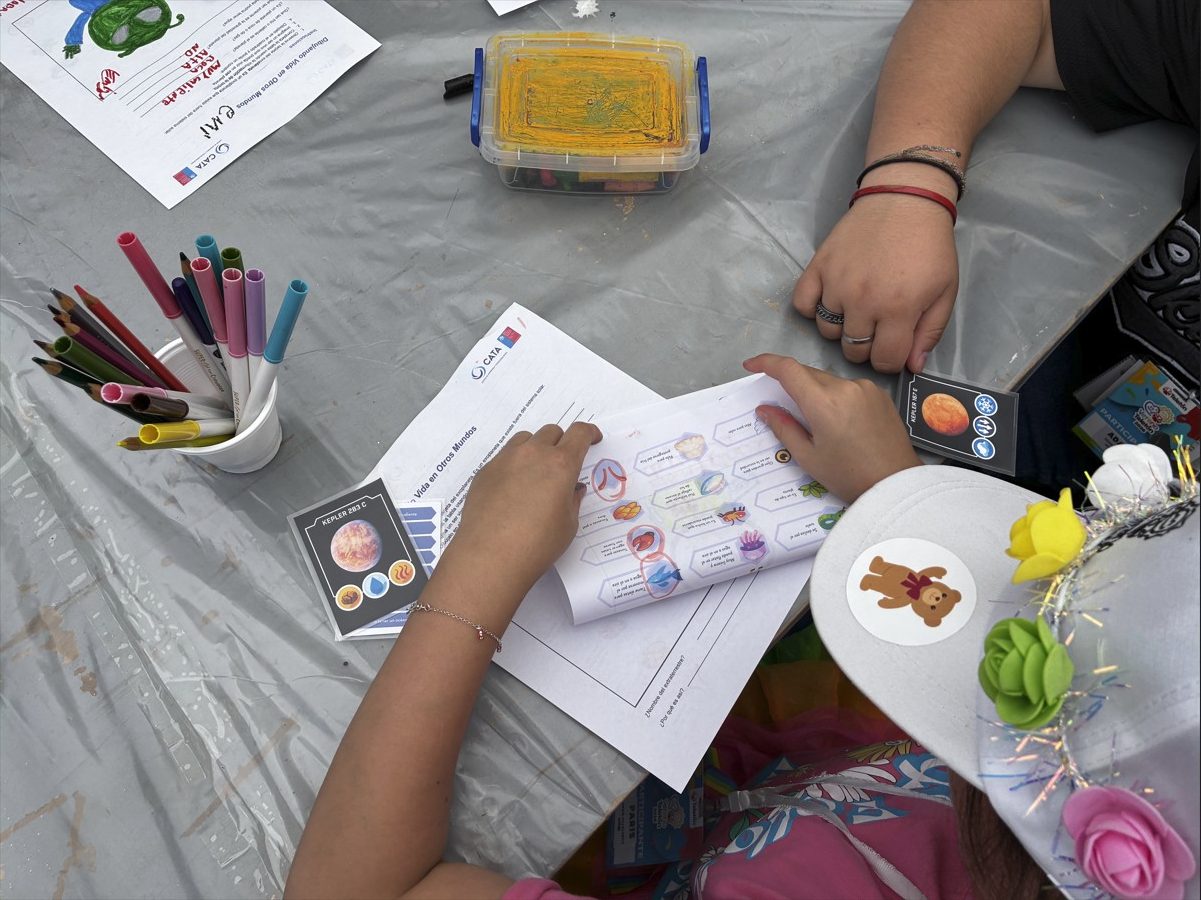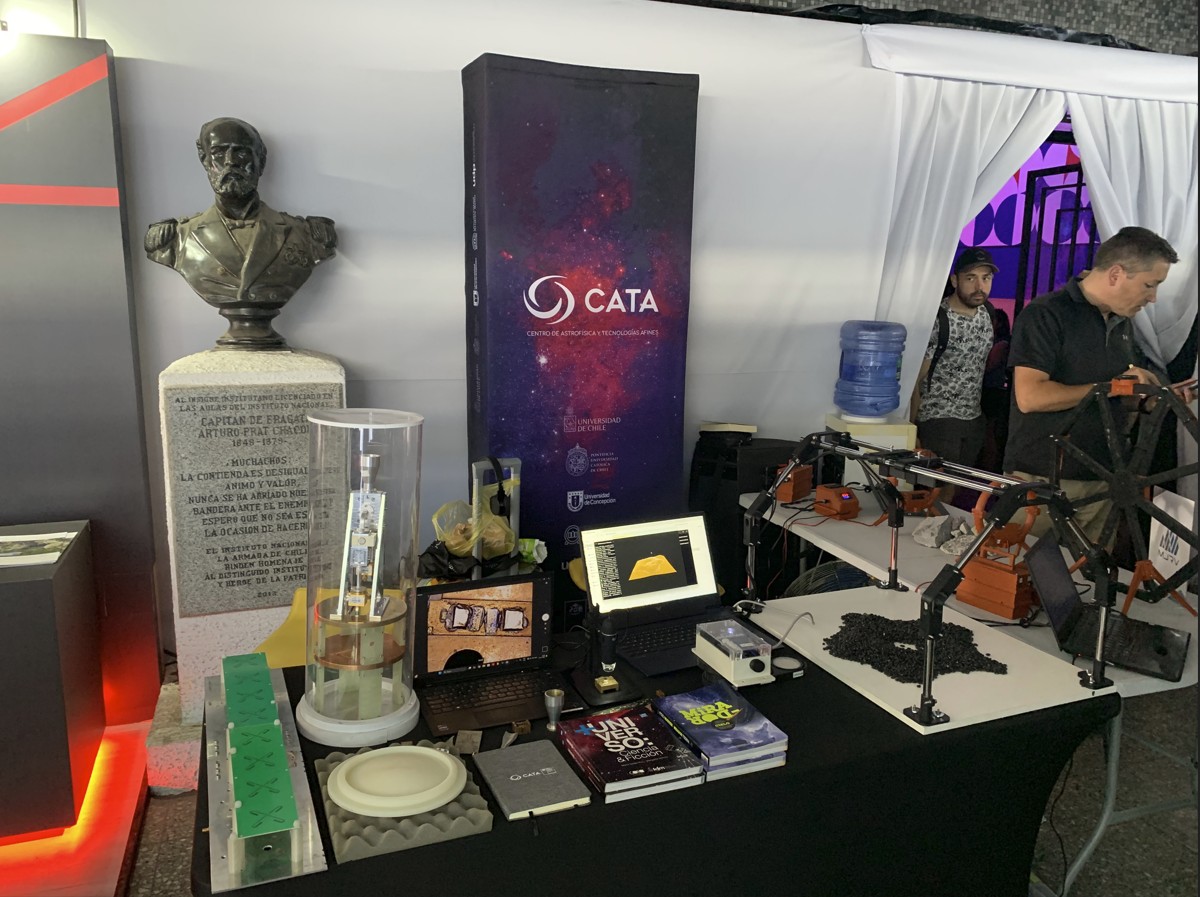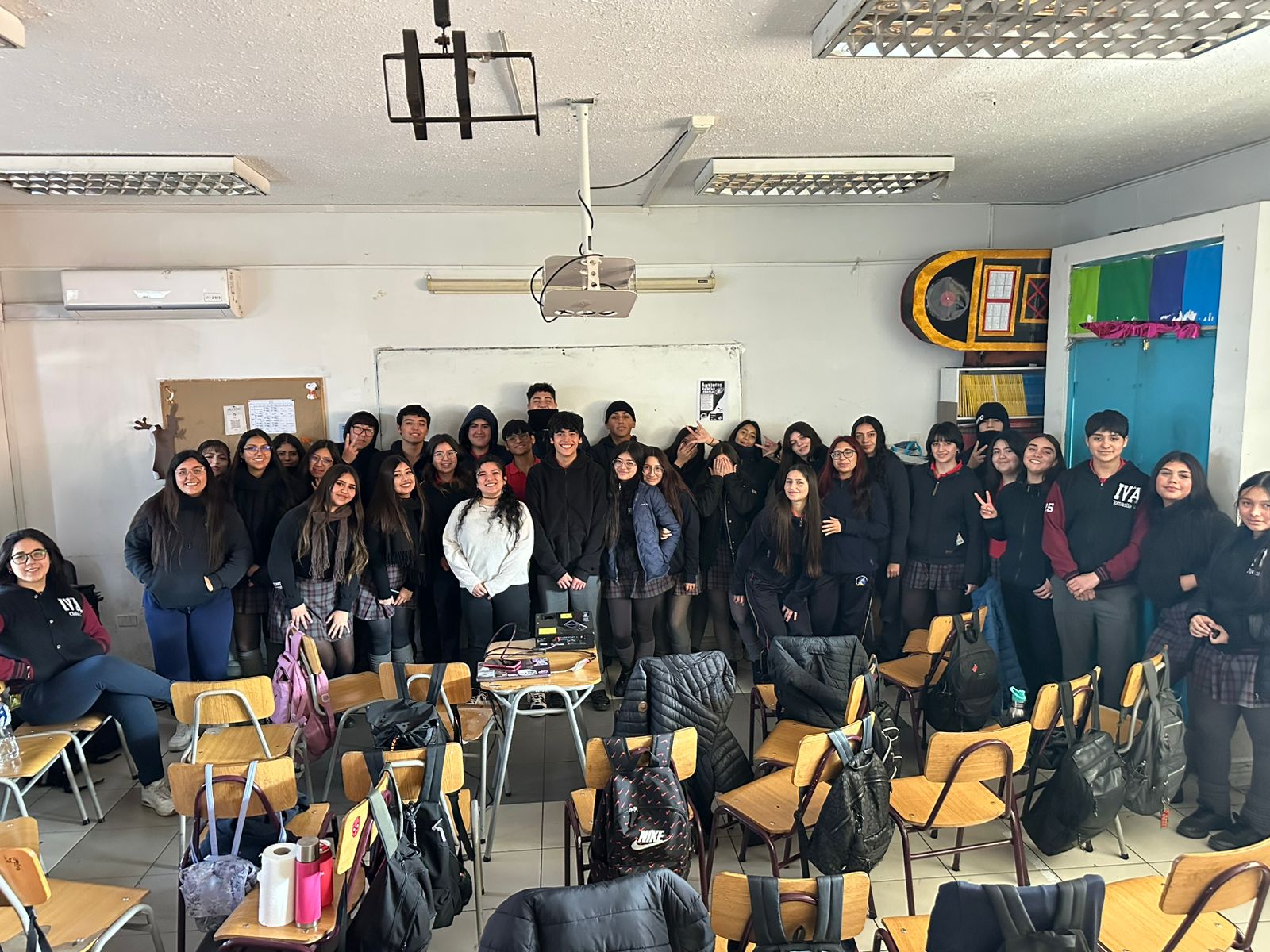
CATA gave a talk on black holes to students of Renca
Macarena Droguett, PhD student at our Center, gave a talk at the Instituto Cumbre de Cóndores Oriente in Renca.
As part of the scientific outreach program run by the Center for Astrophysics and Related Technologies (CATA), our Center’s astronomer and PhD student, Macarena Droguett, gave a talk entitled “Do black holes exist?” at the Cumbre de Cóndores Oriente Institute in the municipality of Renca.
The activity, which was aimed at third- and fourth-year high school students, gave Macarena the opportunity to explain key concepts about black holes, her area of expertise and part of her doctoral research, while answering students’ questions.
“It’s a topic I feel comfortable with and can answer without any problems. Plus, it generally attracts a lot of attention from everyone,” said Macarena, who highlighted the students’ attention and enthusiasm during the activity. “I saw that the kids were really interested, even though it was a bit of a long presentation. They asked me lots of questions. We could have talked all day long.”
The event was positively received by the school, especially by Gabriela Fica, teacher and head of the school’s Science Department. “The students were amazed by Macarena’s youth and friendliness. Her approachability made it easier for the information to sink in, and it even gave students the opportunity to discuss the topic with their classmates who were unable to attend the talk,” she said.
From her personal experience, Macarena emphasized the importance of centers such as CATA reaching out to schools through initiatives such as this. She added that these meetings allow students to “see, learn, and ask questions of someone who works in astronomy. I feel that this is important, and not only that, but also that they recognize themselves in us, that they can see that scientists are normal people who love knowledge and are also curious.”
Professor Fica valued the long-term impact that these instances have in the classroom, highlighting that “it gives them an overview of the work that still needs to be done in this area of knowledge. Interest in scientific careers, curiosity about real phenomena, and the development of critical thinking are some of the skills that I saw strengthened thanks to this type of initiative.”
For Macarena, CATA is opening new avenues for science in Chile: “One, two, or five children might catch their attention, but that makes a difference. In the end, I think CATA is paving the way for new and future astronomers in our country.”
Recent news
-
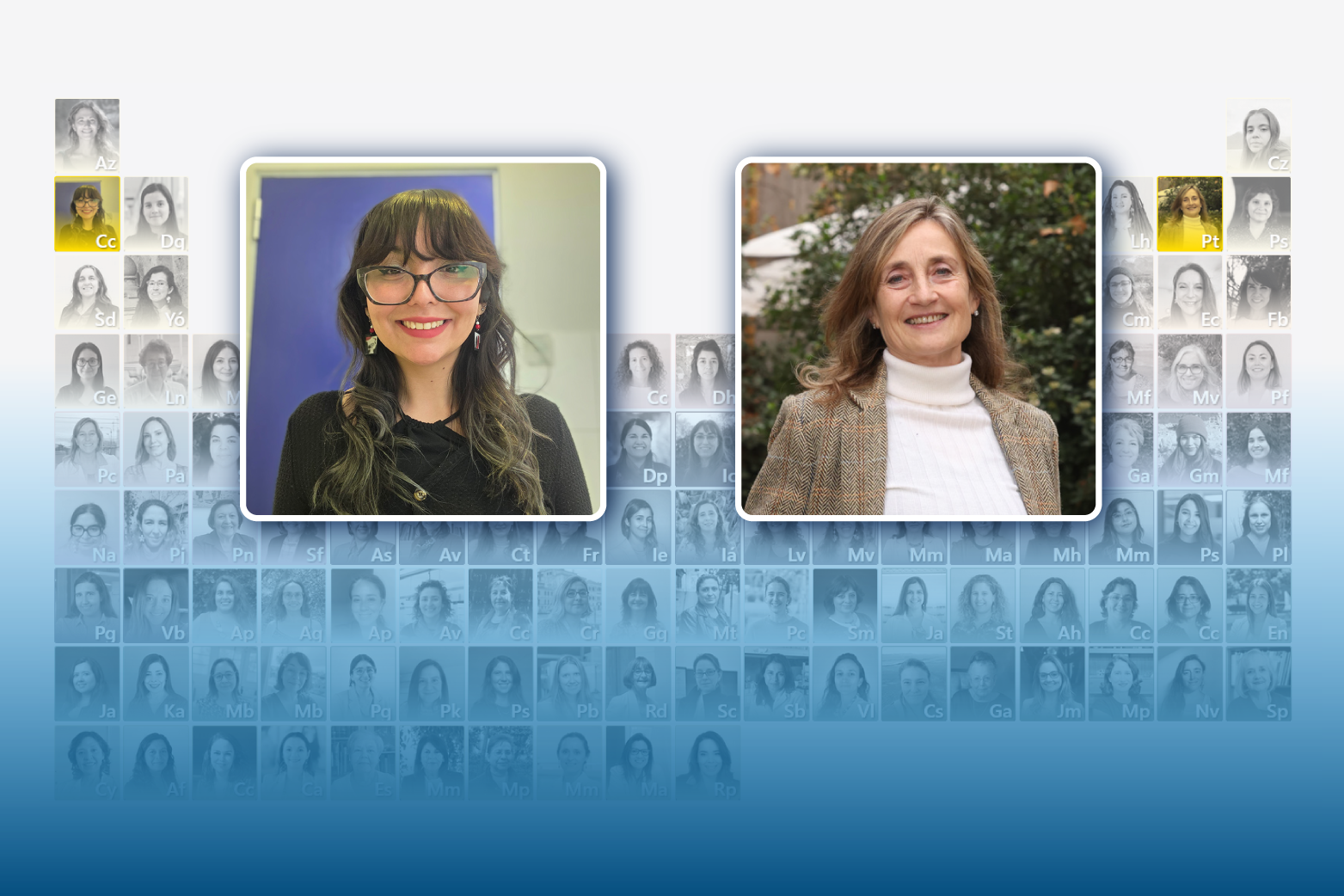 Publicado el: 17/02/2026The National Congress Library highlights CATA researchers in its second edition of Chilean Women Scientists
Publicado el: 17/02/2026The National Congress Library highlights CATA researchers in its second edition of Chilean Women Scientists -
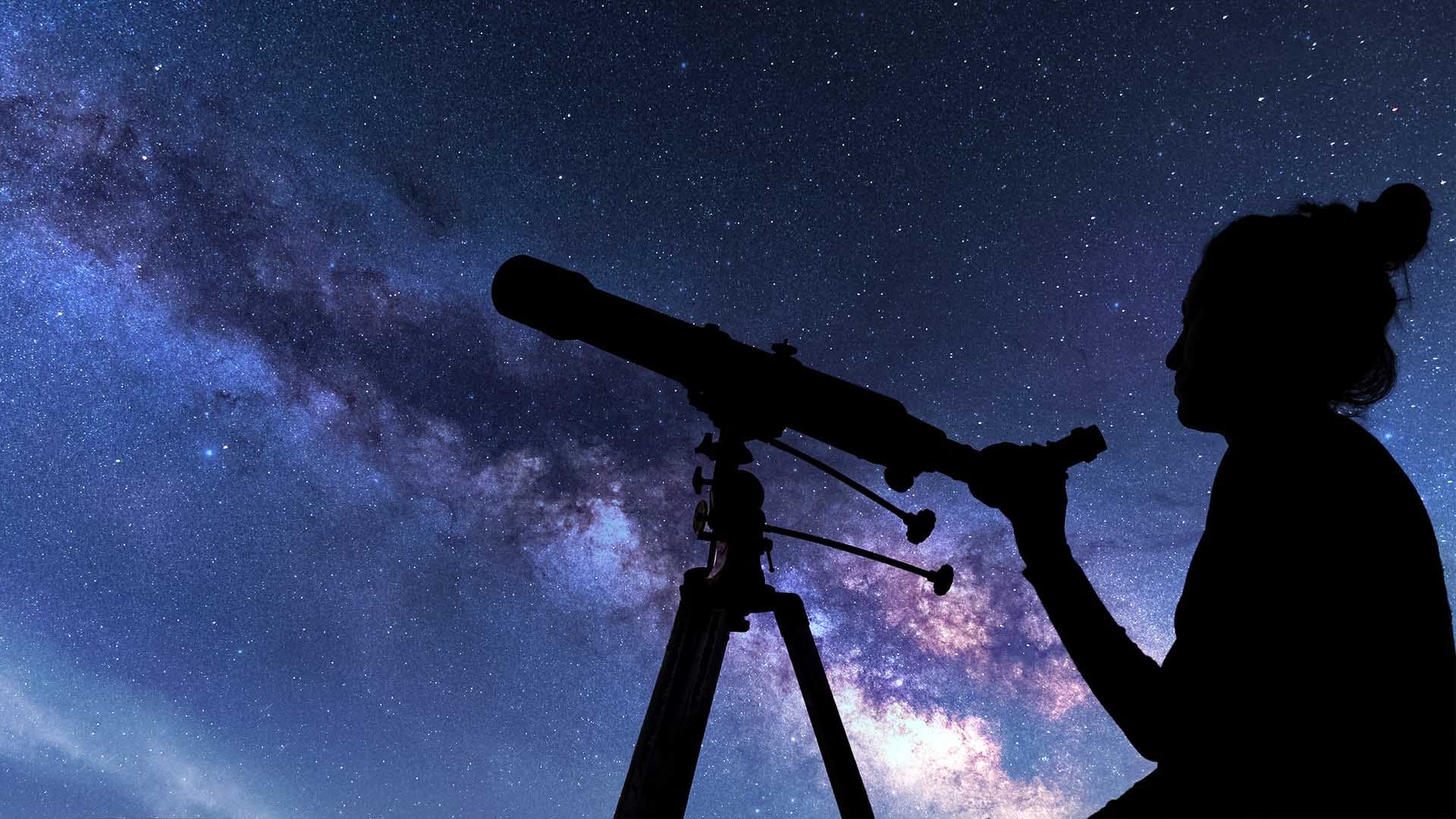 Publicado el: 11/02/2026Science with a woman’s face: gaps, vocations, and pending challenges
Publicado el: 11/02/2026Science with a woman’s face: gaps, vocations, and pending challenges -
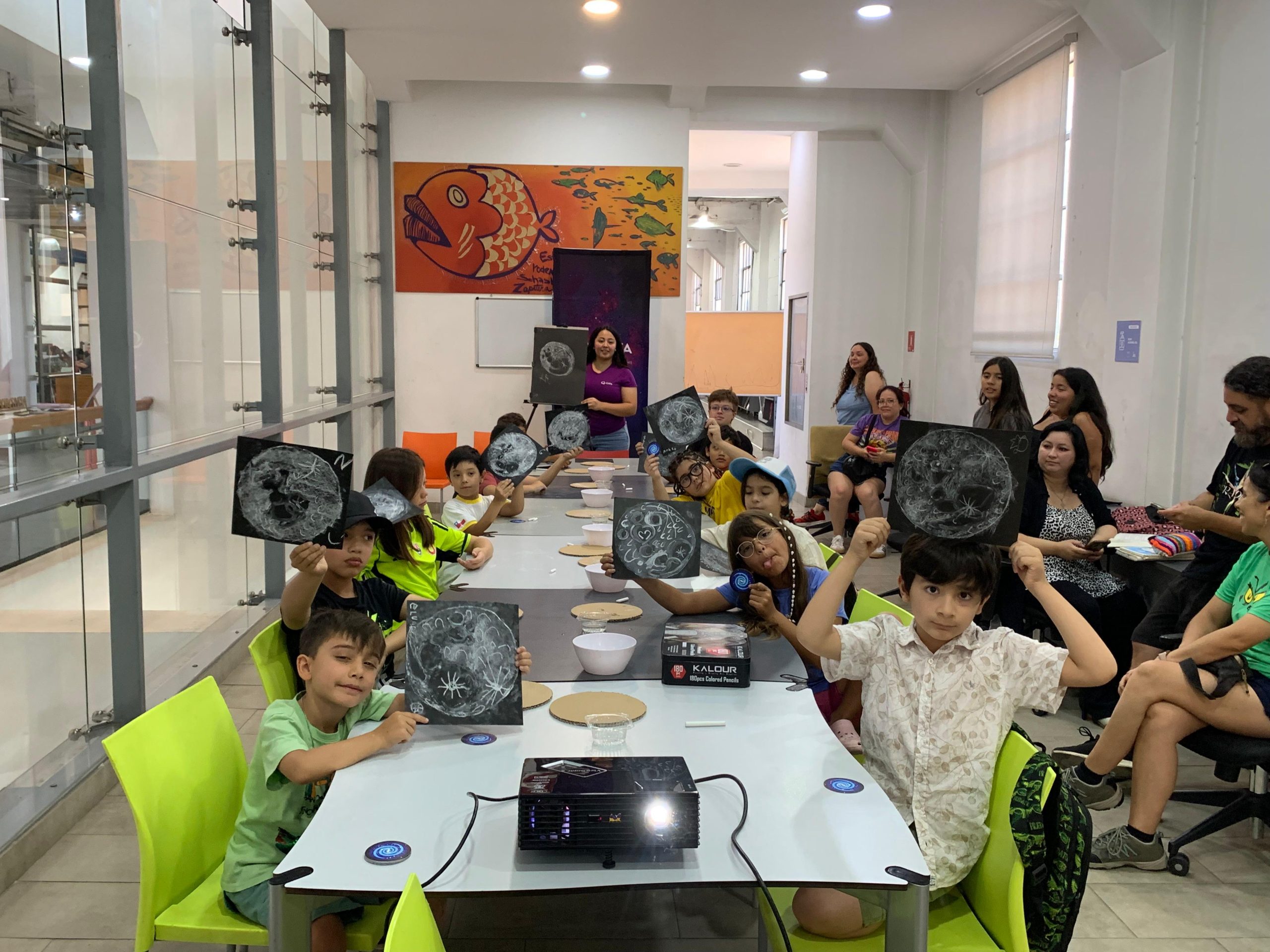 Publicado el: 09/02/2026Astronomy Day was held at the Santiago Library
Publicado el: 09/02/2026Astronomy Day was held at the Santiago Library -
 Publicado el: 30/01/2026Looking ahead to the next five years: Galaxies Area meets to share progress and strengthen research
Publicado el: 30/01/2026Looking ahead to the next five years: Galaxies Area meets to share progress and strengthen research -
 Publicado el: 29/01/2026Will Earth have two moons until 2083? The idea behind object 2025 PN7
Publicado el: 29/01/2026Will Earth have two moons until 2083? The idea behind object 2025 PN7
Categories list
- Acknowledgments 24
- Astrobiology 8
- AstroCluster 1
- Black holes 19
- Corporativo 62
- Cosmology 5
- Descubrimientos 25
- Disclosure 78
- Exoplanets 15
- Extension 6
- Galaxies 23
- Galaxies formation 7
- Inter y Transdisciplina 4
- Local Universe 17
- Publications 7
- Sin categorizar 36
- Solar System 24
- Stellar formation 8
- Technology 18
- Technology Transfer 20
